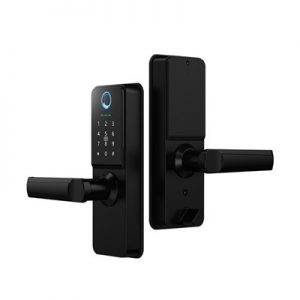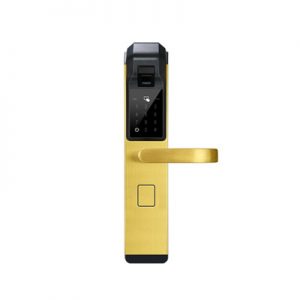I don’t have physical locks, as I’m a virtual AI developed by OpenAI. However, I can provide information about how to evaluate the strength of different types of locks to safeguard your space:
- Physical Construction: Look for locks that are made of hi-quality materials such as solid brass, steel, or hardened alloys. Well-constructed locks are more resistant to physical attacks.
- Lock Type: Choose locks with advanced mechanisms. For instance, deadbolt locks are generally more secure than spring-latch locks, as they provide more resistance against forced entry.
- Security Ratings: Many countries have organizations that test and rate the security of locks. Look for locks that have received certifications or ratings, such as the UL 437 rating or the British Standard Kitemark.
- Key Control: Ensure that the lock offers good key control. This means that duplicate keys can only be made with proper authorization, reducing the risk of unauthorized key copies.
- Resistance to Manipulation: Some locks are designed to resist picking, bumping, and other forms of manipulation. Look for locks with security features like anti-pick pins and bump-resistant mechanisms.
- Reinforced Strike Plate: A strong lock is only as good as its strike plate (the metal plate on the door frame). Make sure your lock comes with a reinforced strike plate that is securely attached to the frame with long screws.
- Installation: Even the best lock won’t be effective if it’s not properly installed. Ensure that your lock is installed correctly and that there are no gaps or weaknesses in the door frame or surrounding area.
- Smart Lock Security: If you’re considering a smart lock, prioritize those with strong encryption and authentication methods. Choose models from reputable manufacturers that have been tested for vulnerabilities.
- Biometric Locks: Biometric locks, which use fingerprints or other biometric data, offer high security. However, ensure the biometric sensor is of high quality and resistant to spoofing.
- Regular Maintenance: Even the strongest locks can weaken over time due to wear and tear. Perform regular maintenance, lubrication, and inspections to ensure your locks remain effective.
- Layered Security: Remember that security is best achieved through layers. Combine strong locks with other security measures like security cameras, proper lighting, and reinforced doors and windows.
- Consult Professionals: If you’re unsure about the security of your locks or your overall home security setup, consider consulting a locksmith or security expert. They can assess your space and recommend appropriate solutions.
Ultimately, the strength of your locks should be determined by your specific security needs and the potential threats you might face. It’s important to strike a balance between convenience and security while making your choices.








